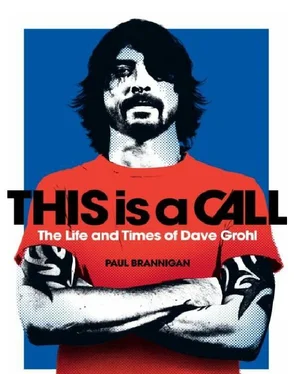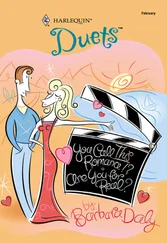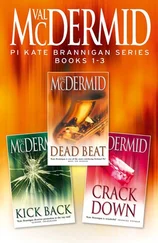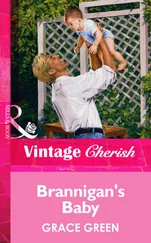Paul Brannigan - This is a Call
Здесь есть возможность читать онлайн «Paul Brannigan - This is a Call» — ознакомительный отрывок электронной книги совершенно бесплатно, а после прочтения отрывка купить полную версию. В некоторых случаях можно слушать аудио, скачать через торрент в формате fb2 и присутствует краткое содержание. Город: Cambridge, MA, Год выпуска: 2011, ISBN: 2011, Издательство: Da Capo Press, Жанр: Биографии и Мемуары, на английском языке. Описание произведения, (предисловие) а так же отзывы посетителей доступны на портале библиотеки ЛибКат.
- Название:This is a Call
- Автор:
- Издательство:Da Capo Press
- Жанр:
- Год:2011
- Город:Cambridge, MA
- ISBN:978-0-306-82051-9
- Рейтинг книги:3 / 5. Голосов: 1
-
Избранное:Добавить в избранное
- Отзывы:
-
Ваша оценка:
- 60
- 1
- 2
- 3
- 4
- 5
This is a Call: краткое содержание, описание и аннотация
Предлагаем к чтению аннотацию, описание, краткое содержание или предисловие (зависит от того, что написал сам автор книги «This is a Call»). Если вы не нашли необходимую информацию о книге — напишите в комментариях, мы постараемся отыскать её.
Nevermind
This is a Call — читать онлайн ознакомительный отрывок
Ниже представлен текст книги, разбитый по страницам. Система сохранения места последней прочитанной страницы, позволяет с удобством читать онлайн бесплатно книгу «This is a Call», без необходимости каждый раз заново искать на чём Вы остановились. Поставьте закладку, и сможете в любой момент перейти на страницу, на которой закончили чтение.
Интервал:
Закладка:
While journeying into the dark heart of punk rock, Grohl remained preoccupied by the idea of playing guitar in a band. The circumstances which finally enabled him to do so were unorthodox. In autumn 1983 Tony Morosini, a student at Thomas Jefferson High School, spotted Grohl and Christy entertaining the elderly residents of an Alexandra nursing home, playing cover versions of Rolling Stones and Who songs on their guitars. The gig had been organised by their school’s Key Club, a civic-minded student organisation whose stated aim was to provide members with ‘opportunities to provide service, build character, and develop leadership’ by undertaking tasks to help the local community. ‘Dave and I just joined for the keg parties,’ Christy admits today.
‘So we played for a room full of people whose average age was maybe, I don’t know… 10,000?’ recalls Grohl. ‘And we played “Time Is on My Side”. Time Is on My Side? Did they enjoy it? I don’t even know if they could hear it!’
Morosini, a talented drummer, had been jamming with two fellow Thomas Jefferson High upperclassmen in the basement of his Alexandria home, and he saw the confident, charismatic Christy as the missing piece in his rock ’n’ roll jigsaw. That same week Morosini approached Christy in the school corridor and enquired as to whether the freshman student would be interested in fronting his band. Christy offered to give it a shot, but on one condition. He told Morosini, ‘It’s a package deal, though: I got Dave, and where I go Dave goes.’ Morosini shrugged his shoulders. Sure, he said, whatever, bring Dave too, we’ll be a five-piece.
The band practised regularly in the basement of Morosini’s parents’ house, hammering out covers of classic rock anthems: Bowie’s ‘Suffragette City’, The Who’s ‘My Generation’, some Stones, Chuck Berry’s ‘Johnny B. Goode’ and, perhaps inevitably, that evergreen punk staple ‘Louie Louie’. With a few appearances at backyard parties already under their belts, by the end of the ’83 – ’84 school year the band felt confident enough to put their name forward for Thomas Jefferson High School’s annual variety show competition – or rather they would have put their name forward had their band actually been in possession of a name.
‘When we registered for the show we were asked for the band name and we said “We’re nameless,”’ says Nick Christy. ‘So that’s how we got billed on this variety show, Nameless.’
The competition saw Nameless pitted against the school’s reigning variety show champions,Three for the Road, a three-piece garage band from the school’s senior year, fronted by Mississippi Senator Trent Lott’s son, Chet Lott. A degree of rivalry existed between the two bands – ‘Three for the Road always seemed like they were better than us,’ remembers Nick Christy – and the entire student body was aware that this year’s competition carried with it a new edge.
‘We had won this contest every year so we just assumed we were going to win it forever,’ recalls Chet Lott, now a 44-year-old political lobbyist working alongside his father and former Louisiana Senator John Breaux at the Breaux Lott Leadership Group in Washington DC. ‘Maybe we were a little naïve. When they showed up it was like, “Oh, hell, now we got some real competition here!”’
On the day of the competition Nameless played well, blasting through raucous covers of The Who’s ‘Squeezebox’, Chuck Berry’s ‘Johnny B. Goode’ and their trump card, Kenny Loggins’s recent Billboard chart-topper ‘Footloose’. Three for the Road followed with a strong set of their own, turning in powerful versions of the Rolling Stones’ ‘Honky Tonk Women’, The Who’s ‘Can’t Explain’ and Creedence Clearwater Revival’s ‘Have You Ever Seen the Rain?’ The fate of both bands lay in the hands of their audience, quite literally, as the contest was to be decided by the volume of applause garnered by each act. Ultimately, to Grohl’s intense disappointment, Three for the Road triumphed once more. ‘All the chicks loved them,’ a rueful Grohl admitted 25 years on.
‘Those guys had some real chemistry in their band, and obviously some great musicians,’ recalls Chet Lott, an accomplished musician himself, with two albums of soulful, country rock to his name. ‘In Three for the Road we were not great musicians individually, but as a unit we were pretty good. And because we’d been around since freshman year that helped us a little bit in the talent show as we already had a bit of a following. I don’t think Dave Grohl has lost out too often since that day…’
The June 1984 Thomas Jefferson High School variety concert was to be one of the Nameless’s final appearances. Just a few months later, following his parents’ divorce, Nick Christy’s mother moved her family back to Massachusetts; without their frontman the band soon petered out. Amusingly, in 2009, when I asked Grohl about the band’s demise, he put his own tongue-in-cheek, mythologising spin on the breakup: ‘We lost a couple of members to drugs, women and fast cars,’ he said with a shrug. ‘Hey, it was North Virginia, it was crazy…’

By 1984 the American hardcore scene itself was slowly disintegrating. Many of the musicians who had helped build the community no longer recognised or respected it. Violence and drug abuse prevailed, younger acts seemed content to ape their heroes rather than search for their own voice, and arguments about politics, sexism, racism and ethics played out in the letters pages of fanzines. The civil war tearing the scene apart was one of the topics under debate when maximumrocknroll brought together Ian MacKaye, Articles of Faith’s Vic Bondi and M.D.C.’s Dave Dictor for a round-table discussion in the summer of 1983. MacKaye’s exasperation was all too evident when at one point he asserted, ‘Punk rock has more assholes, in a ratio sense, than any other kind of music. They don’t have respect for anything, it drives me crazy.’ Something had to give. And in September 1983, as the issue went on sale, his band Minor Threat played their final show.
In truth, the members of this volatile and relatively short-lived group were never the best of best friends, and would argue constantly – about songwriting, about MacKaye’s lyrics, about their relationship with Dischord and their future plans. ‘I have some really great practice tapes with about seven minutes of music and about eighty-three minutes of arguing,’ MacKaye would wryly note years later.
By the time the quartet recorded their début album Out of Step with Don Zientara in January 1983, MacKaye was already directing much of the anger in songs such as ‘Betray’, ‘Look Back and Laugh’ and ‘Cashing In’ squarely at Preslar, Baker and Nelson. Minor Threat may have been out of step with the world, but they were also increasingly out of step with one another, and their status as kingpins of the national hardcore scene only exacerbated divisions within a band that bassist Baker once scathingly dismissed as ‘an after-school hobby for some over-privileged kids’.
‘Part of the split was that Lyle and I – what a surprise, the private school kids – wanted to continue to build and to see where this could go,’ Baker told me in 2010. ‘I mean Minor Threat never left the United States and we wanted to see the rest of the world: we thought that there was potential to keep moving forward. And that really wasn’t in the cards and so basically that’s what split us up. Aspirations tend to ruin the best of intentions.’
On 23 September 1983 Minor Threat played their final show, opening up for DC Go-Go legends Trouble Funk at the Landsburgh Center. They aired a new song for the first, and last, time.
Читать дальшеИнтервал:
Закладка:
Похожие книги на «This is a Call»
Представляем Вашему вниманию похожие книги на «This is a Call» списком для выбора. Мы отобрали схожую по названию и смыслу литературу в надежде предоставить читателям больше вариантов отыскать новые, интересные, ещё непрочитанные произведения.
Обсуждение, отзывы о книге «This is a Call» и просто собственные мнения читателей. Оставьте ваши комментарии, напишите, что Вы думаете о произведении, его смысле или главных героях. Укажите что конкретно понравилось, а что нет, и почему Вы так считаете.












